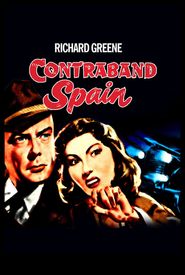Josep Maria Forn i Costa, a celebrated Spanish thespian, cinematic entrepreneur, and master filmmaker, burst into the world on April 4, 1928, within the bustling metropolis of Barcelona, a city renowned for its rich cultural heritage and vibrant energy.
As a fledgling filmmaker, he embarked on a thrilling cinematic odyssey in the 1950s, with the conception of his critically acclaimed short-film masterpiece, Gaudí, in the year 1954, which served as a precursor to a string of commercially successful movies that showcased his remarkable artistic prowess, subsequently solidifying his reputation as a master of his craft.
The cinematic masterpiece "Burnt Skin" (1967),a film of great renown and acclaim, boldly addressed the profoundly significant issue of migration from various regions of Spain to Catalonia, effectively capturing the essence of this pivotal phenomenon.
Despite the formidable obstacles posed by the repressive censorship regime of General Francisco Franco, which sought to silence dissenting voices and restrict artistic expression, "Burnt Skin" somehow managed to transcend the constraints and strike a chord with audiences, leaving a lasting impact on the cinematic landscape.
Forn's unwavering passion for the realm of cinema in the year 1975 ultimately led to the establishment and subsequent presidency of the renowned Institut de Cinema Català, a distinguished entity that would subsequently assume a vital function in fostering and bolstering the film industry within the Catalan region.
Forn's remarkable career trajectory has been marked by a series of distinguished appointments, with a notable stint as the director of the cinematography department within the esteemed Generalitat de Catalunya, a position he held from 1987 to 1991, and later, in 1994, he took on the presidency of the prestigious Catalan Film Directors College.
The remarkable accomplishments of Forn were officially acknowledged and honored with the prestigious Creu de Sant Jordi Award, a highly esteemed and coveted recognition bestowed upon him by the Catalan Government in the year 2001, serving as a tangible testament to the profound and lasting influence he had on the world of cinema, a legacy that continues to inspire and resonate with audiences to this day.



















